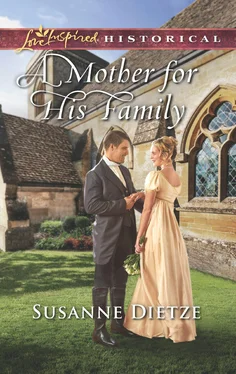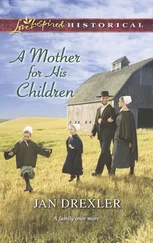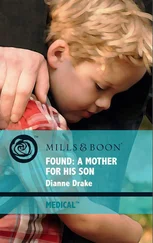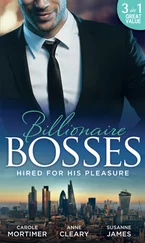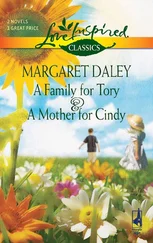“You don’t mind?”
“’Tis my role now, is it not, my lord?”
“John,” he corrected. “You are my wife. Please call me John.”
Her lips parted in surprise, breaking her polite mask. Many couples didn’t use Christian names, but he didn’t think he could stand it if his wife—convenient or not—called him by his title all his days.
“John. And I am Helena, but you know that already.” Her head dipped, but then her brows furrowed and she turned to look out the window. “Are they following us?”
The villagers’ cheers and the strains of flute and fiddle accompanied the carriage around the bend toward home. “Aye, for the wedding feast.”
“The entire village will be there?” Her fingers stilled, but her gaze met his in an apologetic look. “Forgive me. I’d not expected much celebration. My mother said—”
Her lip caught in her teeth, as if she bit back her next words.
“What did she say?” Plenty, no doubt, if she was of the same mind as her husband. Kelworth certainly thought John uncouth. “Did she think I’d be inhospitable?”
A vibrant flush stained her cheeks, burning away the cool mask she’d affected. “She said naught about you, just my...circumstances. That there was nothing to be celebrated.”
John’s amusement fled as understanding dawned. His wife expected no festivities because her wedding was no happy union, but a rushed embarrassment, the fruit of her ruin and his desperation.
He’d not known quite what to expect of Lady Helena, beyond Tavin’s assurances of her gentility, but he’d learned a few things of her since their first meeting in the ha-ha. She was willing to pay the price for her mistakes, and she was brave to have made the decision to marry him. Most of the time, she wore a mask that made her appear haughty, but beneath it, she was lost, unfamiliar with her new surroundings. And no doubt she felt quite alone.
The carriage rounded onto Comraich’s drive. John had but a moment left of privacy while the liveried footman hurried to open the door latch and lower the steps. “Your mother is wrong. There is much to celebrate this happy day.”
And it was true. He’d prayed for a wife to help him, and the Lord had sent Helena. Perhaps the tone of their marriage could be set now, with their first steps on his—their—land. “Comraich means welcome, and it is now your home every bit as it is mine.”
“That’s a beautiful name.” Her smile was small but enough to assure him his words comforted her. John preceded her out of the carriage and assisted her down.
Her head was regal as she met the staff lined in neat rows at the door. She greeted each one, from the lowest of the chambermaids up to the butler, Kerr, the housekeeper, Mrs. McGill, and his valet, Ritchie. Then the other carriages arrived, followed by villagers, and everyone moved to Comraich’s grassy yard, where the aromas of roasting mutton and beef tangled in the air with laughter and strains of music.
After welcoming the guests and nibbling on the roast meat and punch, John and his bride separated. He didn’t even glance at his wife until his portly agent, Burgess, stopped midsentence and lifted his brows. “Fetching scene, m’lord.”
John turned. His new wife, her white gown billowing in the breeze, linked arms with his niece Margaret as they strolled away from the festivities. Helena’s head bent toward Margaret’s, and she spoke softly. He couldn’t see Margaret’s face, but he imagined a smile there.
He expelled a long breath of relief. Thank You, Lord. It seemed he’d made a wise decision, after all. Despite the scene at the kirk, Margaret seemed to be regretting her attitude and was now warming to his new wife. Before long, the boys would, too.
He’d had nothing to worry about, after all. Everything would go well from here on out.
* * *
At least Margaret didn’t try to break free from Helena’s loose hold as Helena led her toward the house. “When did you find time to do it?”
“I don’t know what you’re talking about.” Margaret forced a phony-sounding laugh.
Helena’s eyes stung from the oversweet tuberose perfume the girl had liberally applied at some point since arriving back from the kirk, but the fragrant fumes weren’t all the girl had put on. “I know the effects of Rigge’s Liquid Bloom and a rouge crepe paper pressed against a cheek when I see them.”
“I didn’t do anything.”
“You are not the first person I’ve met to use color and deny it. Even the Prince Regent.” Helena glanced about, thankful they stood in the shadow of the house. “I’ve no wish to embarrass you, but you are far too young for cosmetics.”
Although she had a fair idea why Margaret had put them on: that dark-haired schoolboy who’d tugged Margaret’s bonnet ribbon. “Who is that young man?”
“Archibald Dunwood, the solicitor’s son.” Margaret’s tone was superior.
Archibald—like every third male she’d met today. “I see. Well, he will still be at the party after we’ve washed your face.”
Margaret’s head snapped back, as if she’d been slapped. “I’m not washing my face. I’m not wearing cosmetics.”
Really, was she having this argument with a child? At her wedding party? What should she do? Mama would order the nursemaid to see to her punishment and ignore her for several days, dared she behave like this.
But Helena was not Mama. She looked Margaret in the eye, or at least tried to, for the child stared at the house with a mulish expression. “You may not lie to me, Margaret. I know my being here will be a difficult adjustment for us all, but things will go better if we are honest with one another.”
That got Margaret to return her gaze, but oh how it crackled, like a log catching fire, sparking and hot. “May I go inside the house to wash my face, Lady Ardoch?”
Helena ignored the sarcastic tone. “By all means. And then we may start again.”
But Margaret was already stomping toward the house.
It was a relief when Papa approached, a familiar face among the strangers. Behind him, some sort of dance began, with the fiddle and fife growing louder. Papa would not dance, of course, but the tiniest bit of her wished he would dance with her on her wedding. For one person to be happy. Other than Louisa, that is, who’d been sweet enough once the mouse was out of her dress.
“Papa, isn’t this a lovely party?”
“Just so,” he said in a tone that implied the opposite as he stared at a toddler attaching himself to her new husband’s legs. “Alas, I must take my leave.”
“It has been a long day.” Helena’s feet ached. Or rather, one ached. The other—the one she’d twisted last week—throbbed. And Papa must be exhausted, too. He hadn’t been well. “What time shall we expect you to call tomorrow?”
As his head shook, a thin lock of faded blond hair fell over his forehead. “Tomorrow I return to London.”
Oh. Her eyes stung, but she’d not allow tears. “When will I see you again?”
If ever? As if on cue, Papa coughed. She reached out but didn’t allow herself to touch him. He wouldn’t want it.
This spell was blessedly short, however. Within a few moments he took a steadying breath. “I do not know. I’m certain your mother desires a letter from you, once you are settled.”
“I shall write to her on the morrow.” It would be pleasant if he waited to deliver it himself, but clearly, he had no desire to stay any longer than he’d had to. He hadn’t been well, true—
“How could Mrs. Knox permit you to wear that?”
“Wear what?” Was her hem ripped? Did she drip punch on her bodice?
“That gown. ’Tis a good thing no one we know from London can see you—can you imagine what my brother would say?”
Читать дальше
